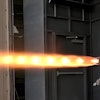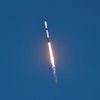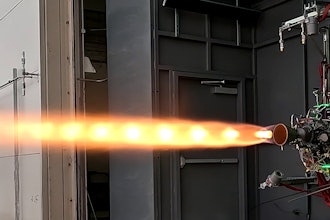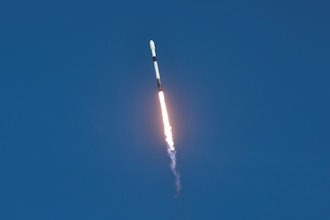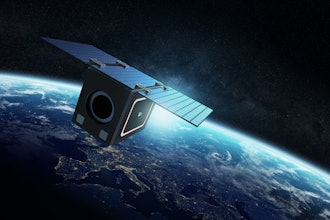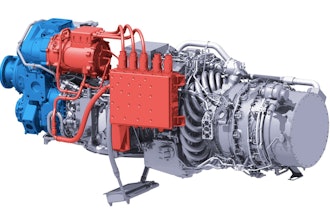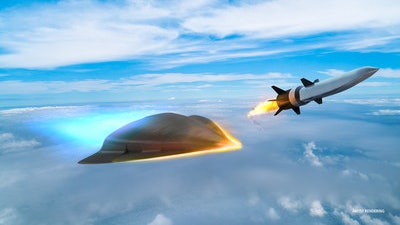
TUCSON, Ariz. -- Raytheon and DARPA recently completed a successful baseline design review for the Tactical Boost Glide hypersonic weapons program, establishing the company's technical approach for a critical design review and moving the system a step closer to development and use.
A boost glide weapon uses a rocket to accelerate its payload and achieve hypersonic speeds – velocities greater than Mach 5.
During flight, the payload separates from the rocket and glides unpowered to its destination.
"We understand the urgency of the need and are working fast to deliver this advanced technology to our nation's military," said Dr. Thomas Bussing, Raytheon Advanced Missile Systems vice president, in a statement. "The goal is to keep America ahead of emerging threats, and we are well on our way."
The U.S. military will use hypersonic weapons to engage from longer ranges with shorter response times and with greater effectiveness than current weapon systems.
Earlier this year, Raytheon received a $63 million DARPA contract to further develop the Tactical Boost Glide program, a joint effort between the agency and the U.S. Air Force.

